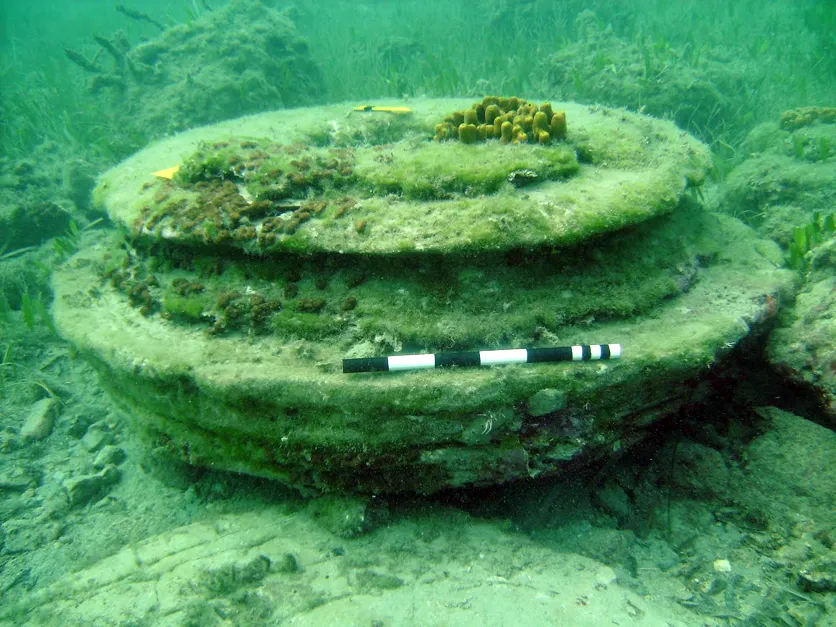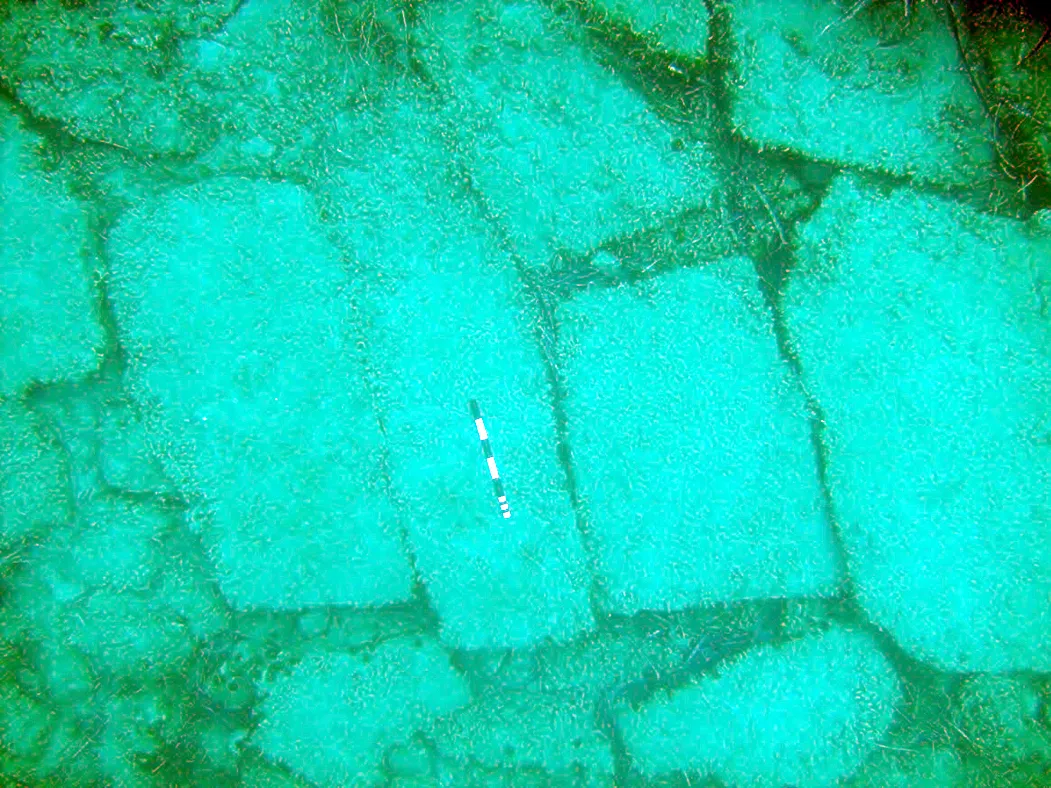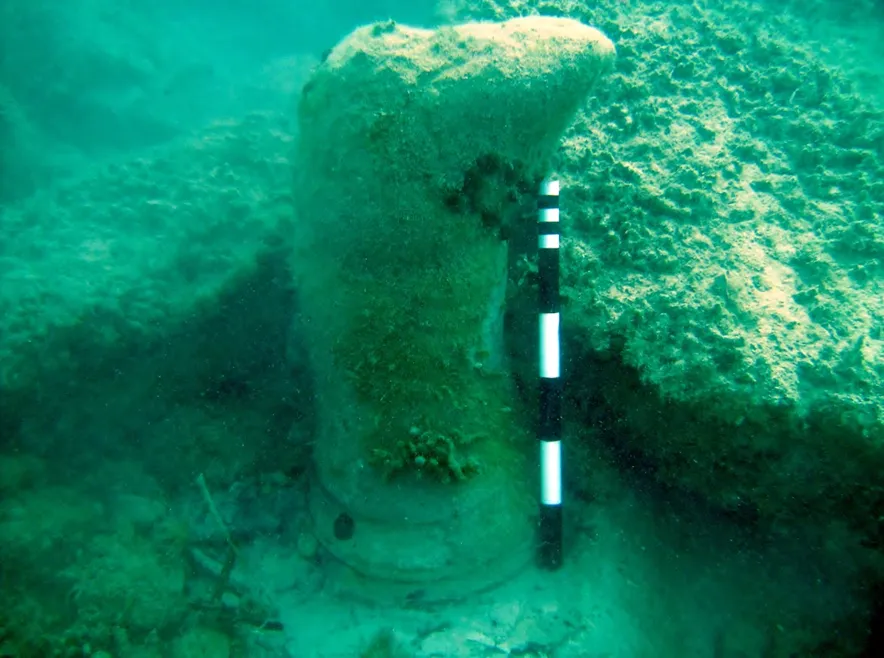Beneath the turquoise waves of the Greek island of Zakynthos lie intriguing formations: pavement-like slabs adorn the seabed, interspersed with circular structures. A long-lost city, perhaps? Maybe even Atlantis? Nope. According to new research, even though the structures look man-made, they formed naturally in the Pliocene era over five million years ago.
The site was first discovered by snorkellers back in 2013, with the photos that they took intriguing scientists so much that they decided to take a closer look. The University of Athens and the University of East Anglia joined forces with Ephorate of Underwater Antiquities of Greece to investigate the site.
“The site was discovered by snorkellers and first thought to be an ancient city port, lost to the sea,” says Prof Julian Andrews, from UEA's School of Environmental Sciences. “There were what superficially looked like circular column bases, and paved floors. But mysteriously no other signs of life – such as pottery.”
The formations, which lie close to Alikanas Bay, are located between two and five metres under the water. According to Andrews, they were caused by gases, especially methane, escaping through a fault in the sea bed. The structures have become exposed because of erosion.
“Microbes in the sediment use the carbon in methane as fuel. Microbe-driven oxidation of the methane then changes the chemistry of the sediment forming a kind of natural cement, known to geologists as concretion,” said Andrews.
While the structures are perhaps not quite as exciting as a hidden city, they are still incredibly unusual as they tend to be found hundreds of metres down.
“These features are proof of natural methane seeping out of rock from hydrocarbon reservoirs. The same thing happens in the North Sea, and it is also similar to the effects of fracking, when humans essentially speed up or enhance the phenomena,” said Andrews.
So, the search for Atlantis continues…



Follow Science Focus onTwitter,Facebook, Instagramand Flipboard
